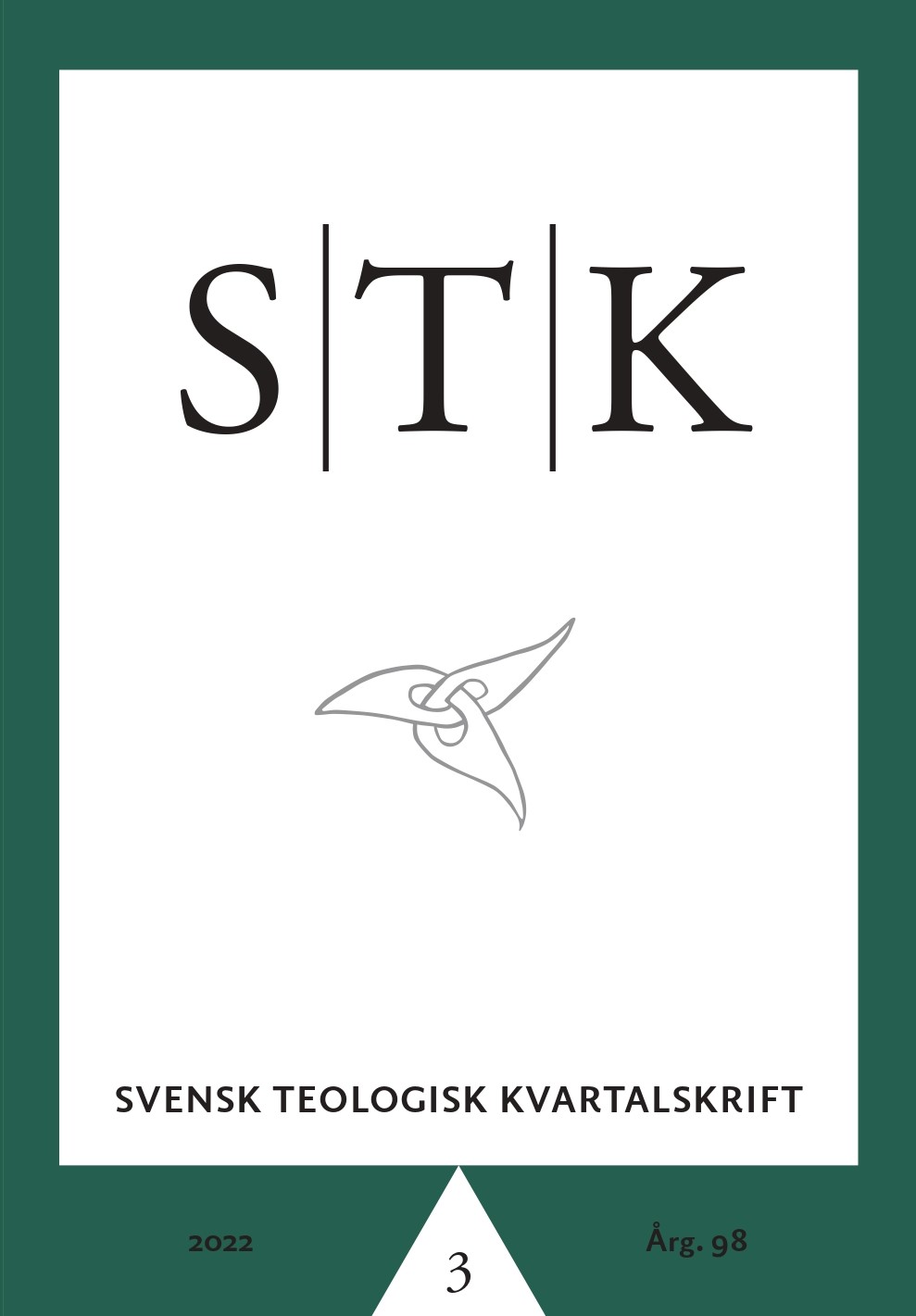Gudomlig enkelhet och gudomlig närvaro
DOI:
https://doi.org/10.51619/stk.v98i3.24733Abstract
In this paper, the development of the understanding of the simplicity of the first metaphysical principle in the Neoplatonic tradition is analyzed. It is argued that Plotinus gives the highest priority to simplicity, making it the most important aspect of his understanding of the first principle, and thereby isolating the first principle and making it separate from the world. It is argued that Proclus gives less priority to simplicity and thereby opens up for a real relation between the One and the world and that Pseudo-Dionysius takes Proclus's modification of Plotinus further and prioritizes the fact that God is beyond being over the fact that God is simple. This gradual change in these three thinkers is placed into dialogue with contemporary discussions about divine simplicity. It is argued that divine simplicity becomes a theoretical problem when it is understood as a positive description of God's being and not as apophatic theology. To stress this point further, Denys Turner's thinking about apophatism is used to argue that divine simplicity should be understood from a most apophatic level of thinking, where it is neither understood as a positive nor negative way of describing God's being.
Downloads
Publicerad
Nummer
Sektion
Licens
Copyright (c) 2022 Anders Ek

Detta verk är licensierat under en Creative Commons Erkännande-Ickekommersiell-IngaBearbetningar 4.0 Internationell-licens.


